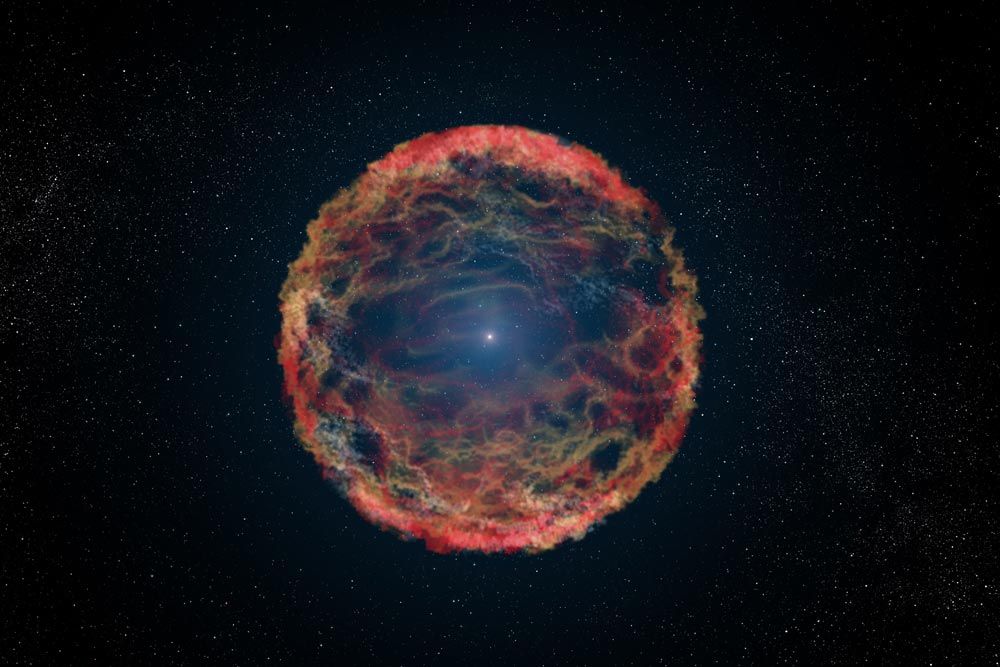
All of Earth might be under water if not for a fortuitously timed supernova explosion, a new study suggests.
A massive star in our sun's neighborhood met its violent end just as Earth and its fellow planets were coalescing 4.6 billion years ago. The blast seeded our nascent solar system with radioactive elements, including aluminum-26 (Al-26), which then heated and dried out the rocky building blocks known as planetesimals, according to the new modeling research.
This desiccation-from-the-inside had a huge effect, because Earth is thought to have gotten most of its water from its constituent planetesimals, study team members said. [Earth Quiz: Do You Really Know Your Planet?]
"The results of our simulations suggest that there are two qualitatively different types of planetary systems," lead author Tim Lichtenberg, who performed the research as a doctoral student at the Institute of Geophysics of ETH Zürich in Switzerland, said in a statement.
"There are those similar to our solar system, whose planets have little water," added Lichtenberg, who is now a postdoctoral fellow at the University of Oxford in England. "In contrast, there are those in which primarily ocean worlds are created because no massive star, and so no Al-26, was around when their host system formed. The presence of Al-26 during planetesimal formation can make an order-of-magnitude difference in planetary water budgets between these two species of planetary systems."
Figuring out why some planets are sopping wet and others, like our own, have a decent helping of exposed land is of considerable interest to astrobiologists. That's because water-world exoplanets don't seem to be as hospitable as exposed-land planets for life as we know it.
Modeling work suggests that deep global oceans are often underlain by thick layers of ice, which would prevent material from circulating between a planet's depths and its surface. So, many water worlds likely lack anything like Earth's carbon cycle, which ensures the recycling of this key element and helps stabilize our planet's climate.
In the new study, Lichtenberg and his colleagues simulated the formation of thousands of planets, looking at the role Al-26 played in determining the worlds' final water abundance. The work was published online Monday (Feb. 11) in the journal Nature Astronomy.
Follow Mike Wall on Twitter @michaeldwall. Follow us @Spacedotcom or on Facebook.
Bagikan Berita Ini















0 Response to "Water Could Have Drowned the Earth If Not for Ancient Supernova - Space.com"
Post a Comment